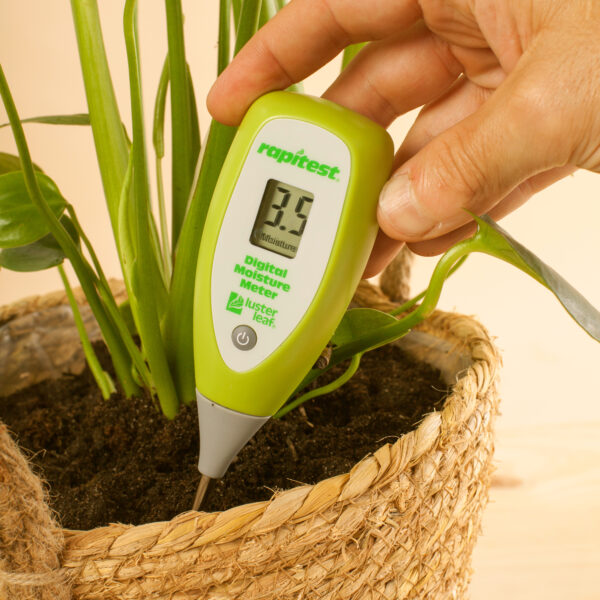Moisture Meter Reviews: Contrasting the Best Models for Specialist and DIY Usage
Moisture Meter Reviews: Contrasting the Best Models for Specialist and DIY Usage
Blog Article
The Ultimate Overview to Dampness Meters: A Comprehensive Summary and Just How They Can Conserve You Cash
In the realm of building maintenance, building and construction, and various markets, the importance of accurately measuring dampness degrees can not be overstated. Moisture meters function as essential tools in identifying and keeping track of moisture content in materials, helping in preventing pricey problems and making sure the top quality of items. Understanding the nuances of different kinds of wetness meters, their applications, and the possible cost-saving advantages they supply can be a game-changer for professionals and businesses alike. Discovering exactly how these gadgets can not just streamline procedures however additionally add to financial savings is a trip worth beginning on.
Kinds of Dampness Meters
One typical kind is the pin-type wetness meter, which gauges the electrical resistance in between two pins put into a product. Pinless wetness meters, on the other hand, use electro-magnetic sensing unit plates to scan a larger location without creating damage to the material's surface.

Infrared moisture meters determine the thermal buildings of a product to establish its dampness material non-invasively, making them helpful for applications where pin or pinless meters might not be suitable. Comprehending the different kinds of dampness meters available can aid industries choose the most suitable tool for their specific dampness dimension requirements.

Benefits of Making Use Of Wetness Meters
Dampness meters supply invaluable advantages in properly keeping an eye on and analyzing dampness levels in varied products and environments. One of the primary advantages of using dampness meters is the prevention of potential damages caused by excess wetness.
In addition, using moisture meters can result in raised energy performance. By identifying locations with high wetness levels, such as leakages or inadequate insulation, changes can be made to enhance power conservation and lower utility expenses. In farming settings, dampness meters play a vital function in optimizing crop returns by enabling farmers to keep track of dirt moisture levels and make educated watering decisions. Generally, the advantages of utilizing dampness meters span across different sectors, supplying economical options and advertising far better quality assurance practices.
Just How to Select the Right Wetness Meter
When selecting a wetness meter, it's crucial to ensure that the meter is appropriate for the certain material you will be testing. Different products have varying electrical residential properties that can affect wetness analyses, so selecting a meter developed for your material is critical for exact results. By thoroughly reviewing these aspects, you can choose a moisture meter that fulfills your demands and supplies precise wetness measurements for your jobs.
Proper Methods for Dampness Meter Usage

Cost Savings Through Wetness Meter Applications
Just how can the strategic utilization of moisture meters lead to substantial cost financial savings throughout different industries? In the agriculture industry, dampness meters help in figuring out the ideal time for collecting crops, avoiding excess or over-drying moisture that can impact the last product's high quality.
In a similar way, in construction, wetness meters assist stop pricey damages by detecting dampness levels in building products, such as wood or concrete, which can result in architectural issues otherwise attended to without delay. By determining problem areas early on, specialists can take corrective procedures to prevent comprehensive fixings or substitutes, eventually saving time and money.
Moreover, in the food processing industry, wetness meters are essential for monitoring item quality and guaranteeing conformity with safety and security guidelines. By precisely measuring moisture web content in food items, suppliers can avoid perishing, keep freshness, and minimize waste, leading to substantial expense savings. Overall, the critical application of wetness meters is a useful investment that can result in significant expense decreases and boosted efficiency across different sectors.
Verdict
Finally, wetness meters are valuable devices for finding and gauging dampness levels in numerous products. By utilizing the ideal dampness meter and adhering to proper techniques, individuals can properly stop costly damages triggered by excess wetness. Purchasing a quality dampness meter can lead to considerable cost financial savings in the future by recognizing potential concerns at an early stage and making it possible for timely remediation. Eventually, dampness meters are crucial instruments for preserving the integrity and durability of frameworks and products.
Moisture meters offer as indispensable tools in finding and keeping track of moisture material in products, assisting in protecting against expensive problems and making sure the top quality of items. Infrared dampness meters measure the thermal homes of this content a product to determine its moisture material non-invasively, making them valuable for applications where pin or pinless meters may not be ideal.Moisture meters supply important benefits in properly assessing and keeping an eye on moisture levels in diverse products and atmospheres. In farming settings, wetness meters play a vital role in maximizing plant yields by making it possible for farmers to keep track of soil wetness degrees and make informed irrigation decisions.In conclusion, wetness meters are important devices for measuring and discovering moisture levels in various products.
Report this page